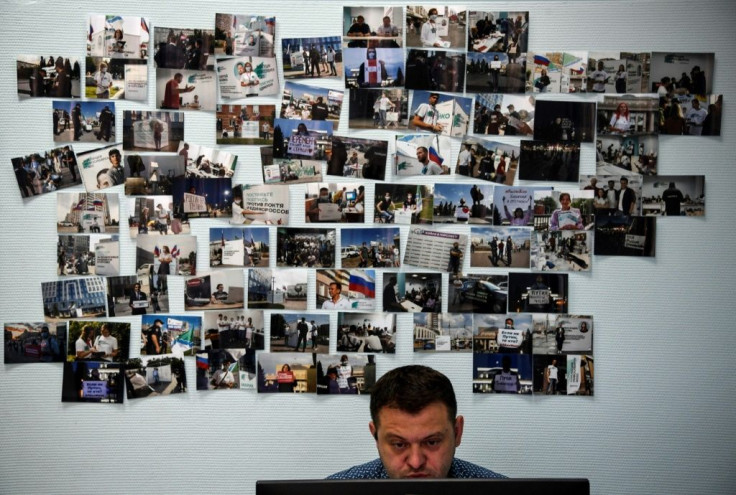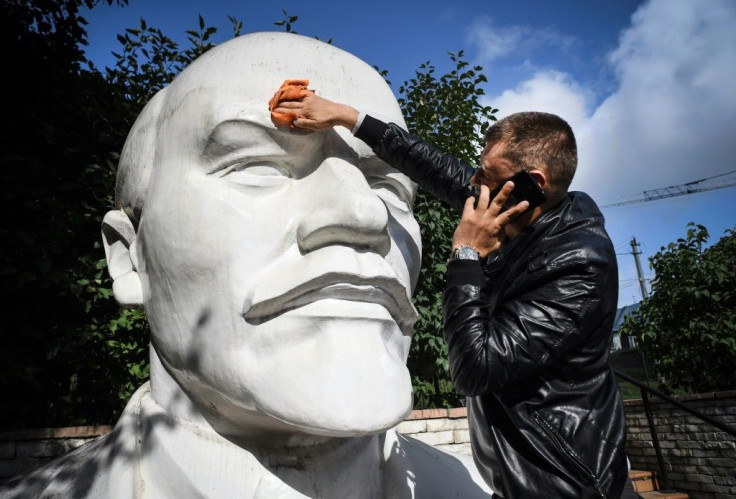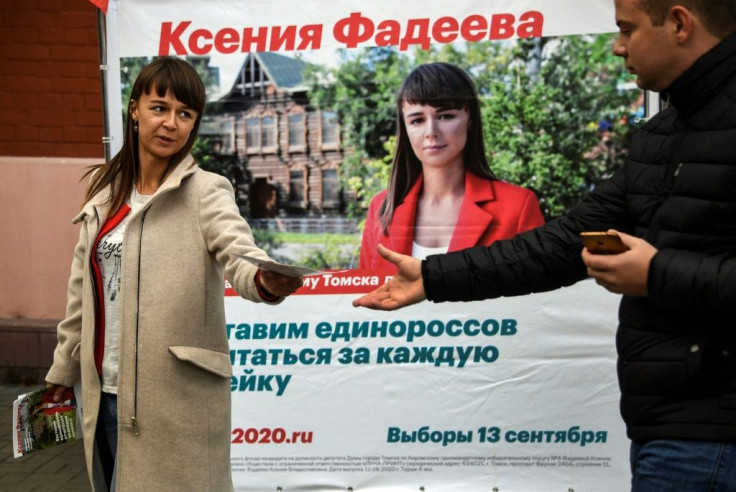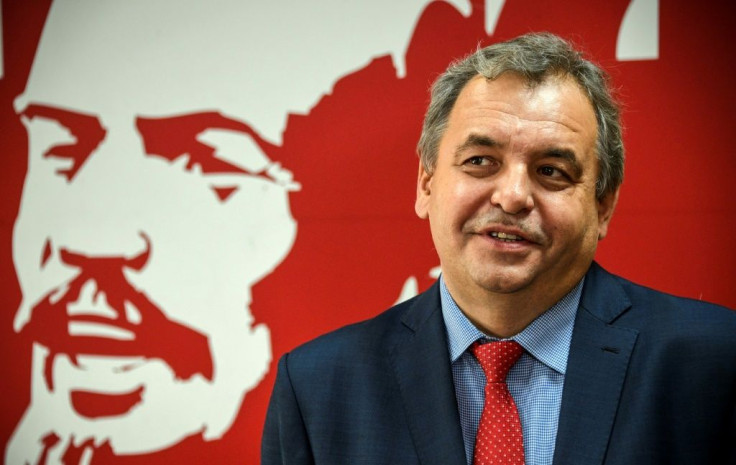Russian Regional Polls Test Kremlin's Crisis Management

Russia is holding regional elections in a precarious political climate, with rallies rocking the Far East, an economic crisis exacerbated by the coronavirus, and the poisoning of opposition leader Alexei Navalny.
In 41 regions, Russians are voting for governors and assemblies, in addition to four by-elections for national MPs.
Early voting begins on Friday, but Sunday will be the main day.
Officials decided to hold the elections over three days to limit gatherings that might spread the coronavirus, but Kremlin critics allege it is a ploy to make it easier to fabricate results.
Russian regional elections rarely gain much attention, and many voters expect the ruling party United Russia to continue to dominate political life in the country.
Some nonetheless hope that might change this year with an emboldened opposition movement challenging the Kremlin's electoral machine.

United Russia faces a popularity crisis -- in part owing to mounting economic troubles exacerbated by the coronavirus epidemic -- ahead of full parliamentary elections next year.
Nowhere has that crisis been more obvious than in the far eastern city of Khabarovsk where residents have been taking to the streets for the past two months.
Moscow has failed to subdue the unprecedented Khabarovsk protests that broke out over the arrest of a popular governor who had defeated an incumbent from the ruling party two years ago.
"The party is in total crisis," said political scientist Alexander Kynev.
"It has absolutely nothing new to offer."

He said it is hoping low turnout will bring about a victory aided by votes from government employees and public sector workers who may be coerced into backing pro-Kremlin candidates.
Moscow is also relying on four new parties to dilute the opposition's vote, said Kynev.
Kremlin critics want to leverage this frustration to win over voters in far-flung regions where many often feel they benefit little from the wealth and resources accumulated in the capital.
Navalny, Russia's most recognisable opposition politician, fell severely ill during a trip to Siberia to investigate corruption and promote his "smart voting" campaign ahead of the regional elections.

Doctors in Berlin, where Navalny was evacuated, found he had been poisoned with a Novichok nerve agent.
The 44-year-old politician was making two video investigations into corruption among the political elite in Tomsk and Novosibirsk last month and had come to support opposition candidates in the cities.
Sergei Boyko, the 37-year-old head of Navalny's office in Novosibirsk, brought together the opposition to counter United Russia and the Communist Party in Russia's third-largest city.
"Usually the ballot is decided in advance. But not this time, and it's great", Boyko, a well-known opposition figure in Novosibirsk, told AFP.
His "Novosibirsk 2020" coalition has put forward around 30 candidates for city legislature and campaigned with the help of volunteers from Navalny's Anti-Corruption Fund.
Ahead of the vote, Navalny's team published reports detailing how loyal members of parliament and officials were profiting from government tenders.
Boyko, a businessman who entered local politics in 2015, hopes his city's distance from the Russian capital will work in his favour.
"Historically, there is a stronger sense of freedom in Siberia, far from power and Moscow," he said.
But there are risks associated with taking a stand against local political elites.
Members of the alliance have been assaulted and the campaign headquarters were attacked.
On Thursday, a Navalny ally was beaten up by unidentified attackers in the Urals city of Chelyabinsk.
This is not enough to deter Khelga Pirogova, 31, a "Novosibirsk 2020" member and deputy candidate who hopes victory will be "a model for all of Russia".
The opposition is campaigning for better public transport and speaking out on environmental issues in a city that suffers from heavy pollution.
But Renat Suleimanov, 54, a Communist party veteran challenging Boyko, insists the opposition has no chance and says it is only able to criticise.
"If you look at their rhetoric, their leaflets, their campaign materials, they say 'everything is bad and they are against it' -- against snow in winter, against rain in summer," he scoffed.
© Copyright AFP {{Year}}. All rights reserved.





















